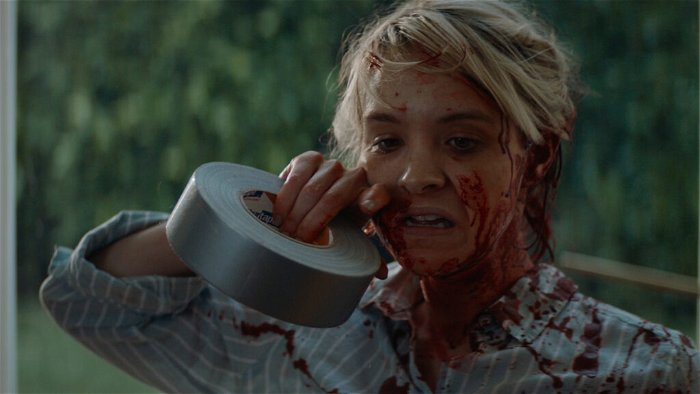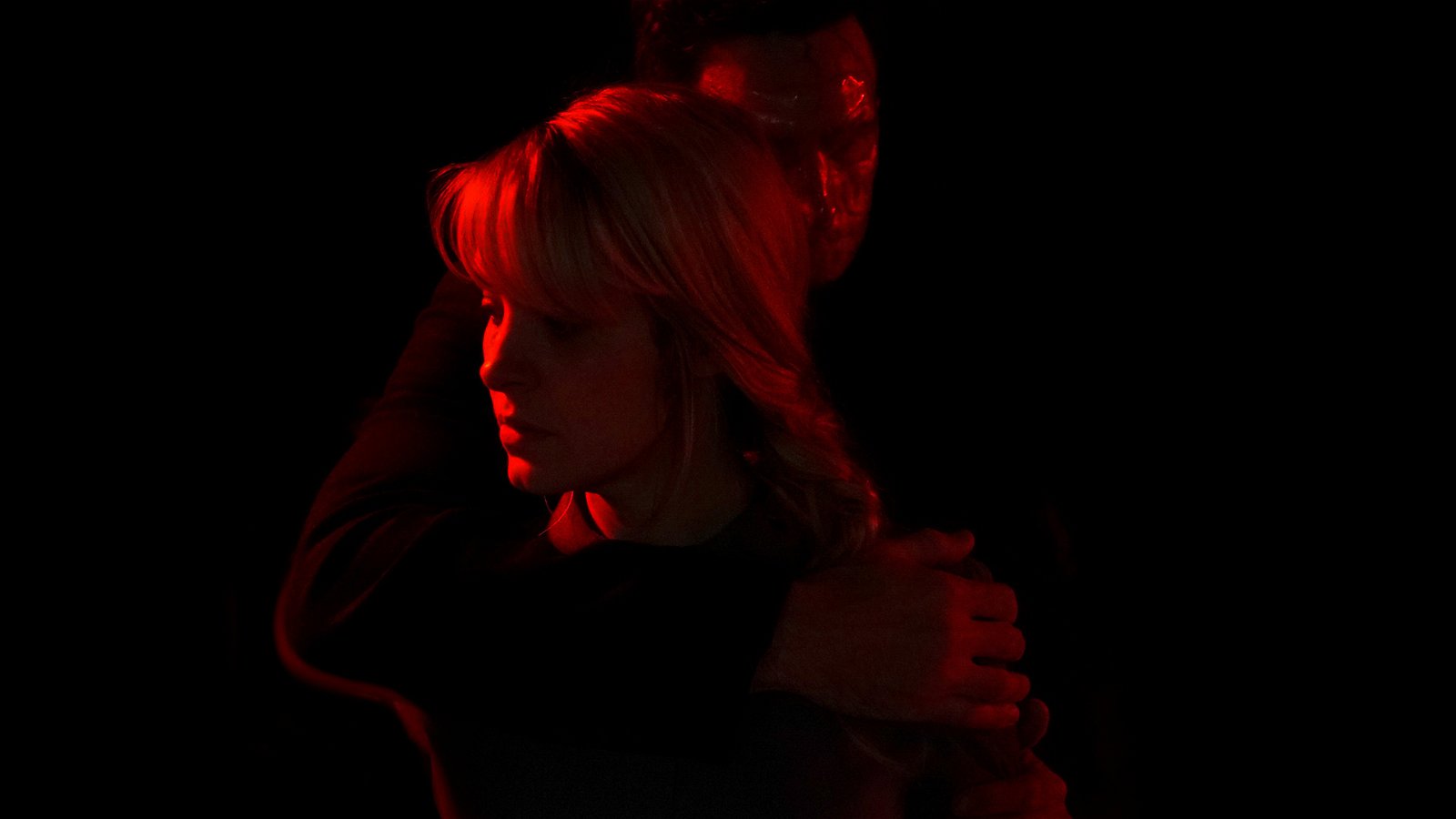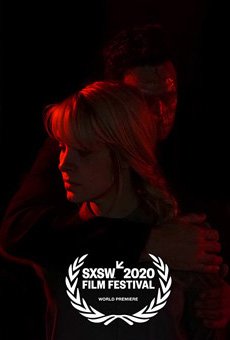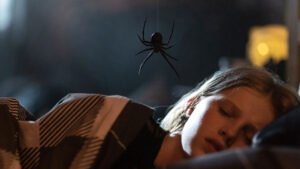Science fiction horror often makes us think of big films, terrors in space or frights with robots, but the sub-genre is at its best when it uses simple techniques to create the surreal. Films like Coherence and Timelapse never drown us in the CGI or practical feats we associate with science fiction, they utilize simple shots to create something spooky. Brea Grant and Natasha Kermani’s Lucky gracefully lands right beside them.
May (Brea Grant, who also wrote the film) is a successful author focused on self-help for women in business. On the surface, she’s a polished executive type with nice suits, a neat braid and a cool house. During a restless night, her home is broken into by, as her husband calls him, “the man who comes to our house every night and tries to kill us.” Thrown from her level existence into a twilight zone version of her life, May must manage to fight off this mysterious foe every night while struggling with the nonchalant attitudes of the police, social workers, and her colleagues. As she descends through the looking glass into an existence mired by a persistent attacker, cracks in her perfect existence begin to show themselves from her marital struggles to the uphill battle of merit for her work.
The surreal re-appearance of the attacker is but a simple allegory for the exhausting experience of womanhood. For May, the persistent killer interrupts her life, makes her lose her grasp on reality, and her trust on those who are supposed to protect her. For all of us, well, exactly. Using this supernatural being, Lucky showcases a plain as day version of the exhaustion women carry with them due to the burden of always needing to be on alert. May’s increasing frustration becomes increasingly relatable. From the few opening scenes, we’re frustrated by May’s husband, Ted (Dhruv Uday Singh) dismissing her terror as hysteria. As the attacks continue, we feel her frustration when the responding detective tells her not to hesitate to call him and she exclaims that she hadn’t. By the time a social worker is asking about her marital problems and past issues with mental health, we’ll want to peel off the wallpaper while shrieking. May is dismissed, brushed off and gaslit by everyone she reaches out to for help and is left mostly alone to fight this demon, that is, until she has the opportunity to save others from it.
The world “lucky” appears multiple times in the film as a means of directly addressing multiple layers of the theme of a woman’s exhaustion. May is told she’s lucky that her attack wasn’t worse, which came from a real life experience Brea Grant relied on for inspiration. Lucky to have only been robbed. May is also told she’s lucky when her publisher asks for a follow-up book, a quick moment that made me want to scream along with May about how our success is so often attributed to luck. Lucky for things to be good, lucky for things to not be so bad, the word is often glibly chucked at women to diminish them and this film stretches that across its entire self.

Though a simple premise being ‘a man returning every night to kill,’ the film tackles more than the one layer of victimhood. It broaches not only victim blaming, but also the “perfect victim.” Women and victims of this sort of violence are often told how they can protect themselves, to remember certain details, to report on time, to be vigilant. May meets every one of the requirements to be a “perfect victim” and yes, is still unable to access help, a very real scenario for victims of assault. Beyond that, May experiences asking men for necessary allyship, and also fails the test of helping other women. Dancing with the issues of white feminism, May purporting to uplift other women by going it together falls flat when she ditches others to save herself.
Natasha Kermani’s direction does so well with the limited budget and limited time to shoot, using things like simple location and character design to create an entire universe. The film simultaneously creates a world that’s chugging along while May feels locked in a loop. It’s claustrophobic and draining while still feeling large and manageable. The action is well shot and it boasts an excellent use of the physical space to create both a feeling of stuffy tension while making sure May feels dangerously exposed and unprotected by walls and doors.
What I took away from this film more than anything is that it was frustrating, maddening, exhausting and horrible from start to finish, yet I smiled and cheered the whole way through. Horror is often used for catharsis and seeing such a real experience played in a surreal way was truly a blast that made me pause it to excitedly go off about scenes to my friends. You might be able to pick apart rules breaking or that it’s too on the nose, but I appreciated its commitment to its bit and how it never jumped too far up itself that it was open to nitpicking.
I truly had a blast with this small sized horror sci-fi that came right for one of my own everyday stresses and I can’t wait for you to experience it. Lucky for you, Lucky has been picked up by AMC’s streaming service, Shudder.






